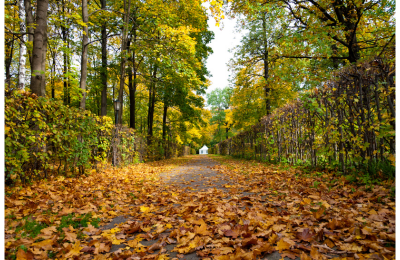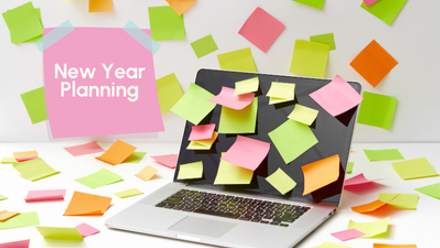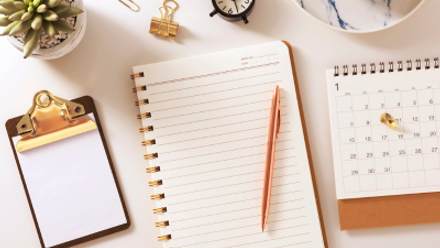Pausing to prepare for the year ahead
5 minute read
‘I’m going on a retreat for the day.’
I knew my family would be picturing a country hotel with a spa and a lounger (yes please!), but actually I was heading to a local cafe with my notebook and a packet of post it notes. It was time for my annual personal retreat and I was full of expectation.
A retreat is defined in the dictionary as ‘an act of moving back or withdrawing’ and that’s exactly what I was planning to do for a few hours. I’d cleared my diary for the day, put my phone on silent and prepared some questions to get me started.
There are different kinds of retreat depending on your needs and purpose. (The spa retreat would have to wait until later in the year but is my favourite kind of pause!).
For me, the beginning of a new year is a natural opportunity to reflect on all that has passed and look ahead to the future. It's a moment to remember past events, celebrate achievements, review challenges and reflect on what I might do differently this year. I also like to consider what I might need to let go of, in order to take hold of something better. That might be physical things, unhelpful habits or emotional clutter. There's a great book by Cathy Madavan called, 'Why Less Means More' which is all about just that.
Each of us will need different things at the start of our new year. A retreat can therefore be anything you need it to be. However, one thing is needed for any retreat. Whether it's focused on you, your business or your relationships; whether it lasts an hour or several days; being intentional is key to making it happen and making the most of the precious time you have put aside.
Here are 6 tips to help you plan and enjoy your own retreat:

1. Schedule it into your diary. Book an appointment with yourself and guard it from other demands. I like to reserve a whole day once or twice a year. Even if I’m not intending to use all of the time on retreat, it provides a buffer either side to gather my thoughts, follow up on any intentions and catch up with any messages on my return. Last year I scheduled a half day personal retreat on my own and a half day business retreat with a colleague.
2. Make a plan. What would you like the outcome of your retreat to be? Is there a specific question you would like to focus on? Are there goals you would like to identify? Do you want to unplug completely and relax?
I prefer to go on retreat away from home as I find the change of scene allows me to think differently and removes the potential for interruptions. Plan as much or as little as you have time and inclination for - you might enjoy being spontaneous and see where the time takes you.
3. Finalise any arrangements. A retreat can be as simple as you like and it doesn’t need to be expensive. I’ve sat in my car looking at beautiful scenery, gone on an extended walk, booked a meeting room at a retreat centre. Think about what's right for you. Consider travel, what you might need to take with you and when you'll eat. If you have a household who depend on you for an evening meal, plan how to make this easy for yourself. I like to have something in the slow cooker so there’s minimal effort required when I return.

4. Go on retreat. This is the day! Enjoy the moment. You might like to begin with some prepared questions, or perhaps read or listen to something relevant to your thoughts. Perhaps a lazy lunch is part of your plan, an afternoon nap, learning something new, taking part in a favourite hobby or simply looking at beautiful countryside as you jot down some reflections. Your retreat is your time to make space for whatever you need in this moment. If it’s a retreat with a business focus you might like to pair up with a colleague. If it’s focused on your relationship, perhaps you'll invite your partner along later to reflect on shared goals.
5. Follow up actions. There may be things you want to pursue as a result of your retreat. Perhaps some further research, reading, listening or training. There may be people you want to chat to or a booking to be made. Allow yourself time at the end of your retreat to get these tasks underway or schedule time for them to happen later so nothing is forgotten.
6. Schedule your next retreat. You may like to schedule a check in with yourself after a few months to see how you’re getting on. I plan a 6 month mini-retreat to look back over my notes. You might like to make room for a series of dates like this to review different areas of your life.
However your new year begins, I hope you find a moment for what you need next - whether that's to plan and schedule, pause and breathe or simply be.
If you would like a Professional Organiser to help you in 2024, take a look at our Find an Organiser page for your local contact.
Lynda Wylie founded Tidy Rooms in 2012 and continues to work alongside her clients to help them make decisions about their things. She loves her job and the amazing people she meets. Lynda is also an APDO trainer and lives in Surrey with her family and Bonnie the cat.






